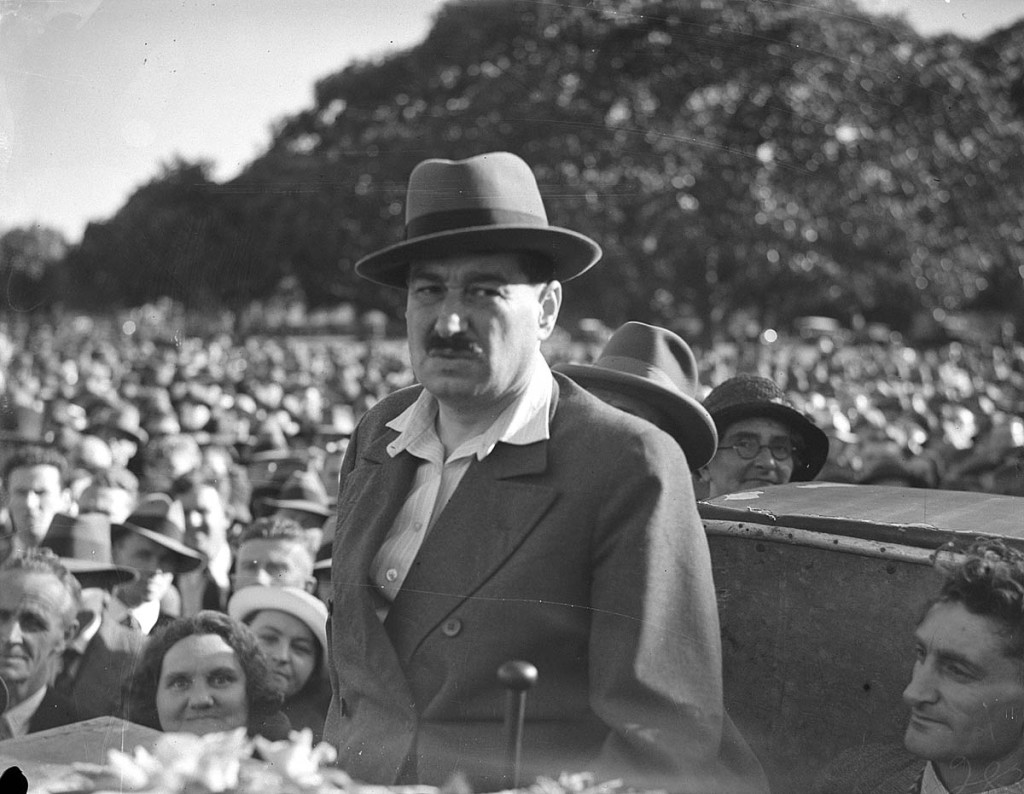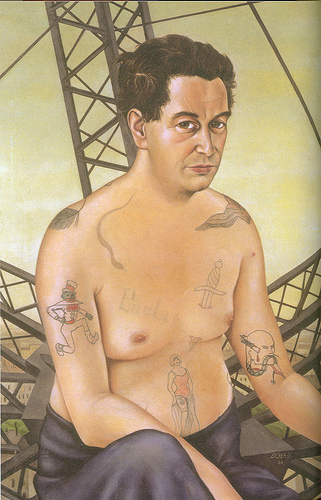Throughout the world, including Italy, we are witnessing the rediscovery of the great Prague journalist

As they say: an adventurous life. Fascinating, in many ways, is the life of Egon Erwin Kisch Prague (1885 – 1948). The journalist who bore the same name as Rommel Erwin but who, on the contrary, fought for an opposite cause to that of Hitler’s general.
Perhaps the most famous adventure of the extraordinary life, of Kisch the communist, was his amazing “landing in Australia”. As you may imagine, his landing was opposed by the continental island authorities, who were afraid of the “communist danger”. It was the year 1934. After his epic landing – he had dived from the “Strathaird”, the ship on which he was a prisoner in the port of Fremantle and had broken both of his legs. He was then tried and convicted for illegal immigration and released after ten days in jail – he held a series of conferences and meetings and then was hailed as a “proletariat hero” by the Australian workers. To the story of his perilous tours between Sydney and Melbourne, the journalist Egon Erwin Kisch has dedicated one of his many books: Landung in Australien.
However, the “furious reporter”, born in 1885, (called “der Rasende reporter,” by his German friends), had always liked pulse-pounding adventures. Ever since his childhood as the young son of a Prague Jewish family, he had chosen to devote himself to reporting crime news, writing about drunkards, petty criminals and prostitutes who lived in the Prague of his time, which was still Habsburgic. The young Kisch soon manifested his journalistic vocation: first with his debut on small magazines, then his collaboration with “Prager Tagblatt” and other German and Czech language newspapers. On the outbreak of World War I, at age of 30, he fought against the Serbs, but was already considering moving to Vienna.
Perhaps Prague, the beloved Golem of Prague and the Jewish quarter, was beginning to seem a little bit narrow. The “furious reporter” sought glory and fame, at any cost. A militant of the Red Guard between Vienna and Berlin, in that communist and internationalist milieu that praised the Soviet Union as a “beacon of humanity”. A journalist and lecturer, in fact, it was in Weimar’s Berlin that Kisch eventually became a popular crime reporter, but never cutting off relations with his town of birth: he was the correspondent of “Lidové Noviny” from Prague, writing articles on Czech politics and together they travelled around the world. It was, in fact, in that period that he did a lot of reportage and wrote books on France, China, Russia, United States and the Balkans.

Having become a myth, he is a sort of Bohemian John Reed. He is always to be found in places where history is in the making: there he is in 1936, for example, following the International Brigades in the Spanish Civil War.
He was a point of reference for pro-Soviet and labourism propaganda, so much so that, when the Berlin Parliament was hit by an arson attack and the Nazis accused the Communists, Kisch is among his “comrades”, who had been arrested by the German authorities. He will later released thanks to the intervention of the Czechoslovakian government. After being extradited from Germany, he was even first time elected to the city council of Prague. It was too risky to return home: Egon accepted the painful but exciting life of expatriate intellectuals. Undoubtedly, there would be a certain amount of nostalgia, the Golem, the walks along the Vltava, the literary heritage of Rainer Maria Rilke and Franz Kafka, the view from Hradcany, but the Nazi threats to towards the small Czechoslovakia did not presage anything good.
Then, as if nothing had happened, the “furious reporter “and his wife Gisela start thinking about a safe haven: why not in the United States, at times vituperated in his books. But his reputation as an “international communist” must have been unknown even across the Atlantic. On his arrival in New York, he was confined to Ellis Island for nine months – the island of the immigrants – by the American authorities. Then, he is afforded the magnanimous grant of a visa to Mexico.
However, in those years preceding the Second World War, Mexico City had become the refuge of anti-fascist intellectuals from across the world. It was an exile, but proved to the fruitful and active. And Kisch works so well that, together with some friends, he was able to found a publishing house, “El libre book.” Here, among other things, he re-published the articles of his debut book “At the fair of the sensational”, a dozen small pictures of Prague at the end of the century. Just the type of work that had introduced him to the journalistic profession.
Reading these environment tales today – now that Kisch is the subject of a close re-discovery in both the U.S. and in European countries – one is struck by the freshness of his “prehensile eye”, by the simplicity and pleasant prose. And also (could it have been be left out) the humour of a decidedly Jewish nature.
However, life had reserved a final surprise for the fiery Egon. After his long exile in Mexico, he came back to Prague in 1946, after the war. He was considered a cosmopolitan hero and was even nominated town councilor for the second time. He considers and is determined to reach new positions in the prestigious new government of Edvard Benes.
In short, they were two intense years, in the new socialist Czechoslovakia, until his mysterious death in 1948. The “mythical Kisch” is invited to a reception at the Russian Embassy. Toasts and good wishes to the proletariat hero: the living symbol of the purest intellectual communist. But when he gets back home, Egon suddenly becomes ill and dies during the night. Was he an intellectual who had become too popular and therefore too inconvenient for the new masters?
But the reputation of the furious and smoky reporter (he had always been a heavy smoker), is not wasted by his death. On the contrary: the German Democratic Republic decides to publish his complete works and Kisch is studied and praised as a hero of Socialist propaganda in all the countries of the Soviet bloc. At the same time, his books also appear in some specific collections of Western publishers. Reunited Germany once more, dedicates the most prestigious journalist award to his name. And now, finally, he has also been rediscovered in Italy: they are going to republish the best criminal cases described by Kisch in Prague at the end of the century. Is it a sign, perhaps, that Kisch, the prodigious journalist, traveler and writer has finally had the better over the political propagandist?
By Ernesto Massimetti




